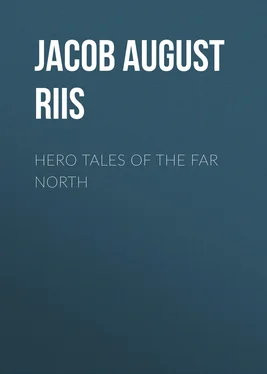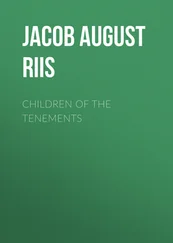Jacob August Riis - Hero Tales of the Far North
Здесь есть возможность читать онлайн «Jacob August Riis - Hero Tales of the Far North» — ознакомительный отрывок электронной книги совершенно бесплатно, а после прочтения отрывка купить полную версию. В некоторых случаях можно слушать аудио, скачать через торрент в формате fb2 и присутствует краткое содержание. Жанр: foreign_prose, История, foreign_edu, foreign_antique, на английском языке. Описание произведения, (предисловие) а так же отзывы посетителей доступны на портале библиотеки ЛибКат.
- Название:Hero Tales of the Far North
- Автор:
- Жанр:
- Год:неизвестен
- ISBN:нет данных
- Рейтинг книги:4 / 5. Голосов: 1
-
Избранное:Добавить в избранное
- Отзывы:
-
Ваша оценка:
- 80
- 1
- 2
- 3
- 4
- 5
Hero Tales of the Far North: краткое содержание, описание и аннотация
Предлагаем к чтению аннотацию, описание, краткое содержание или предисловие (зависит от того, что написал сам автор книги «Hero Tales of the Far North»). Если вы не нашли необходимую информацию о книге — напишите в комментариях, мы постараемся отыскать её.
Hero Tales of the Far North — читать онлайн ознакомительный отрывок
Ниже представлен текст книги, разбитый по страницам. Система сохранения места последней прочитанной страницы, позволяет с удобством читать онлайн бесплатно книгу «Hero Tales of the Far North», без необходимости каждый раз заново искать на чём Вы остановились. Поставьте закладку, и сможете в любой момент перейти на страницу, на которой закончили чтение.
Интервал:
Закладка:
To rouse interest in the mission Egede had sent home young Eskimos from time to time. Three of these died of smallpox in Denmark. The fourth came home and brought the contagion, all unknown, to his people. It was the summer fishing season, when the natives travel much and far, and wherever he went they flocked about him to hear of the "Great Lord's land," where the houses were so tall that one could not shoot an arrow over them, and to ask a multitude of questions: Was the King very big? Had he caught many whales? Was he strong and a great Angekok? and much more of the same kind. In a week the disease broke out among the children at the mission, and soon word came from islands and fjords where the Eskimos were fishing, of death and misery unspeakable. It was virgin soil for the plague, and it was terribly virulent, striking down young and old in every tent and hut. More than two thousand natives, one-fourth of the whole population, died that summer. Of two hundred families near the mission only thirty were left alive. A cry of terror and anguish rose throughout the settlements. No one knew what to do. In vain did Egede implore them to keep their sick apart. In fever delirium they ran out in the ice-fields or threw themselves into the sea. A wild panic seized the survivors, and they fled to the farthest tribes, carrying the seeds of death with them wherever they went. Whole villages perished, and their dead lay unburied. Utter desolation settled like a pall over the unhappy land.
Through it all a single ray of hope shone. The faith that Egede had preached all those years, and the life he had lived with them, bore their fruit. They had struck deeper than he thought. They crowded to him, all that could, as their one friend. Dying mothers held their suckling babes up to him and died content. In a deserted island camp a half-grown girl was found alone with three little children. Their father was dead. When he knew that for him and the baby there was no help, he went to a cave and, covering himself and the child with skins, lay down to die. His parting words to his daughter were, "Before you have eaten the two seals and the fish I have laid away for you, Pelesse will come, no doubt, and take you home. For he loves you and will take care of you." At the mission every nook and cranny was filled with the sick and the dying. Egede and his wife nursed them day and night. Childlike, when death approached, they tried to put on their best clothes, or even to have new ones made, that they might please God by coming into His presence looking fine. When Egede had closed their eyes, he carried the dead in his arms to the vestibule, where in the morning the men who dug the graves found them. At the sight of his suffering the scoffers were dumb. What his preaching had not done to win them over, his sorrows did. They were at last one.
That dreadful year left Egede a broken man. In his dark moments he reproached himself with having brought only misery to those he had come to help and serve. One thorn which one would think he might have been spared rankled deep in it all. Some missionaries of a dissenting sect—Egede was Lutheran—had come with the smallpox ship to set up an establishment of their own. At their head was a man full of misdirected zeal and quite devoid of common-sense, who engaged Egede in a wordy dispute about justification by faith and condemned him and his work unsparingly. He had grave doubts whether he was in truth a "converted man." It came to an end when they themselves fell ill, and Egede and his wife had the last word, after their own fashion. They nursed the warlike brethren through their illness with loving ministrations and gave them back to life, let us hope, wiser and better men.
At Christmas, 1735, Egede's faithful wife, Gertrude, closed her eyes. She had gone out with him from home and kin to a hard and heathen land, and she had been his loyal helpmeet in all his trials. Now it was all over. That winter scurvy laid him upon a bed of pain and, lying there, his heart turned to the old home. His son had come from Copenhagen to help, happily yet while his mother lived. To him he would give over the work. In Denmark he could do more for it than in Greenland, now he was alone. On July 29, 1736, he preached for the last time to his people and baptized a little Eskimo to whom they gave his name, Hans. The following week he sailed for home, carrying, as all his earthly wealth, his beloved dead and his motherless children.
The Eskimos gathered on the shore and wept as the ship bore their friend away. They never saw him again. He lived in Denmark eighteen years, training young men to teach the Eskimos. They gave him the title of bishop, but so little to live on that he was forced in his last days to move from Copenhagen to a country town, to make both ends meet. His grave was forgotten by the generation that came after him. No one knows now where it is; but in ice-girt Greenland, where the northern lights on wintry nights flash to the natives their message from the souls that have gone home, his memory will live when that of the North Pole seeker whom the world applauds is long forgotten. Hans Egede was their great man, their hero. He was more,—he was their friend.
GUSTAV VASA, THE FATHER OF SWEDEN
A great and wise woman had, after ages of war and bloodshed, united the crowns of the three Scandinavian kingdoms upon one head. In the strong city of Kalmar, around which the tide of battle had ever raged hottest, the union was declared in the closing days of the Thirteenth Century. Norwegian, Swede, and Dane were thenceforth to stand together, to the end of time; so they resolved. It was all a vain dream. Queen Margaret was not cold in her grave before the kingdoms fell apart. Norway clung to Denmark, but Sweden went her own way. In the wars of two generations the Danish kings won back the Swedish crown and lost it, again and again, until in 1520 King Christian II clutched it for the last time, at the head of a conquering army. He celebrated his victory with a general amnesty, and bade the Swedish nobles to a great feast, held at the capital in November.
Christian is one of the unsolved riddles of history. Ablest but unhappiest of all his house, he was an instinctive democrat, sincerely solicitous for the welfare of the plain people, but incredibly cruel and faithless when the dark mood seized him. The coronation feast ended with the wholesale butchery of the unsuspecting nobles. Hundreds were beheaded in the public square; for days it was filled with the slain. It is small comfort that the wicked priest who egged the King on to the dreadful deed was himself burned at the stake by the master he had betrayed. The Stockholm Massacre drowned the Kalmar Union in its torrents of blood. Retribution came swiftly. Above the peal of the Christmas bells rose the clash and clangor of armed hosts pouring forth from the mountain fastnesses to avenge the foul treachery. They were led by Gustav 2 2 The older spelling of this name is followed here in preference to the more modern Gustaf. Gustav Vasa himself wrote his name so.
Eriksson Vasa, a young noble upon whose head Christian had set a price.
The Vasas were among the oldest and best of the great Swedish families. It was said of them that they ever loved a friend, hated a foe, and never forgot. Gustav was born in the castle of Lindholmen, when the news that the world had grown suddenly big by the discovery of lands beyond the unknown seas was still ringing through Europe, on May 12, 1496. He was brought up in the home of his kinsman, the Swedish patriot Sten Sture, and early showed the fruits of his training. "See what I will do," he boasted in school when he was thirteen, "I will go to Dalecarlia, rouse the people, and give the Jutes (Danes) a black eye." Master Ivar, his Danish teacher, gave him a whaling for that. White with anger, the boy drove his dirk through the book, nailing it to the desk, and stalked out of the room. Master Ivar's eyes followed the slim figure in the scarlet cloak, and he sighed wearily " nobilium nati nolunt aliquid pati ,—the children of the great will put up with nothing."
Читать дальшеИнтервал:
Закладка:
Похожие книги на «Hero Tales of the Far North»
Представляем Вашему вниманию похожие книги на «Hero Tales of the Far North» списком для выбора. Мы отобрали схожую по названию и смыслу литературу в надежде предоставить читателям больше вариантов отыскать новые, интересные, ещё непрочитанные произведения.
Обсуждение, отзывы о книге «Hero Tales of the Far North» и просто собственные мнения читателей. Оставьте ваши комментарии, напишите, что Вы думаете о произведении, его смысле или главных героях. Укажите что конкретно понравилось, а что нет, и почему Вы так считаете.












